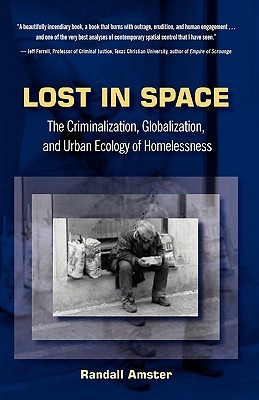
- We will send in 10–14 business days.
- Author: Randall Amster
- Publisher: LFB Scholarly Publishing
- ISBN-10: 1593322976
- ISBN-13: 9781593322977
- Format: 14 x 21.6 x 1.6 cm, minkšti viršeliai
- Language: English
- SAVE -10% with code: EXTRA
Reviews
Description
Amster explores the historical and contemporary implications of homelessness as a social and spatial problem, drawing upon academic disciplines and policy concerns ranging from urban geography to legal advocacy. Homeless people find themselves in a struggle to preserve places that are theoretically open to everyone regardless of status. Urban spaces in particular manifest a complex ecology comprised of people, culture, architecture, technology, and the natural environment, expressed through gentrification, redevelopment, and privatization. In this ecology, homeless people are criminalized for performing basic activities such as sitting or sleeping. These trends are evident across the U.S. and internationally, linking local issues with wider forces of globalization.
EXTRA 10 % discount with code: EXTRA
The promotion ends in 21d.01:57:01
The discount code is valid when purchasing from 10 €. Discounts do not stack.
- Author: Randall Amster
- Publisher: LFB Scholarly Publishing
- ISBN-10: 1593322976
- ISBN-13: 9781593322977
- Format: 14 x 21.6 x 1.6 cm, minkšti viršeliai
- Language: English English
Amster explores the historical and contemporary implications of homelessness as a social and spatial problem, drawing upon academic disciplines and policy concerns ranging from urban geography to legal advocacy. Homeless people find themselves in a struggle to preserve places that are theoretically open to everyone regardless of status. Urban spaces in particular manifest a complex ecology comprised of people, culture, architecture, technology, and the natural environment, expressed through gentrification, redevelopment, and privatization. In this ecology, homeless people are criminalized for performing basic activities such as sitting or sleeping. These trends are evident across the U.S. and internationally, linking local issues with wider forces of globalization.


Reviews